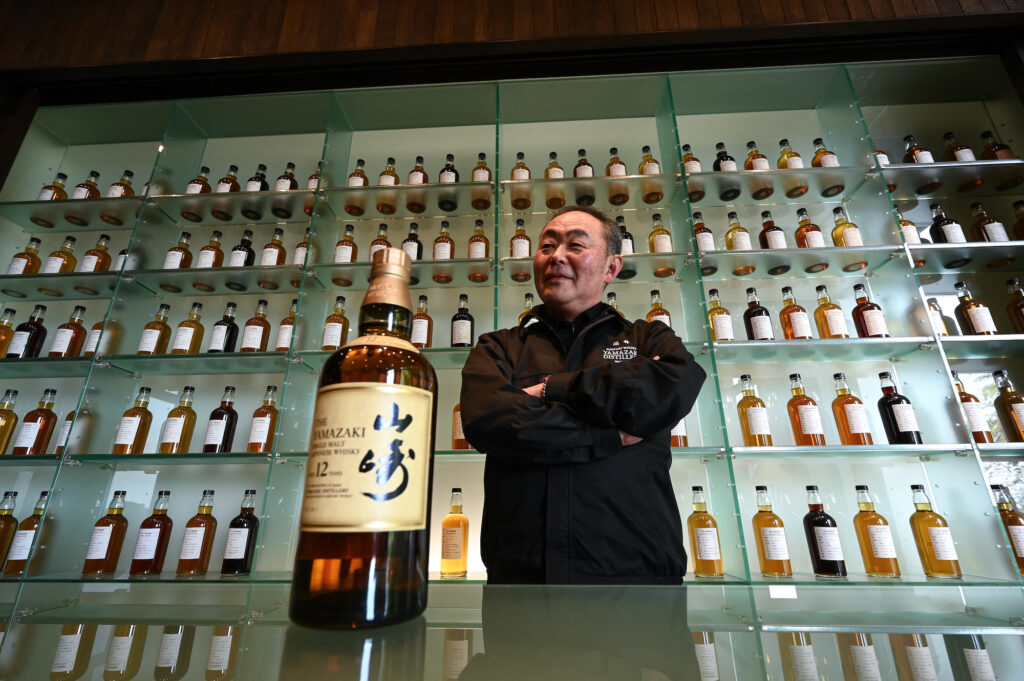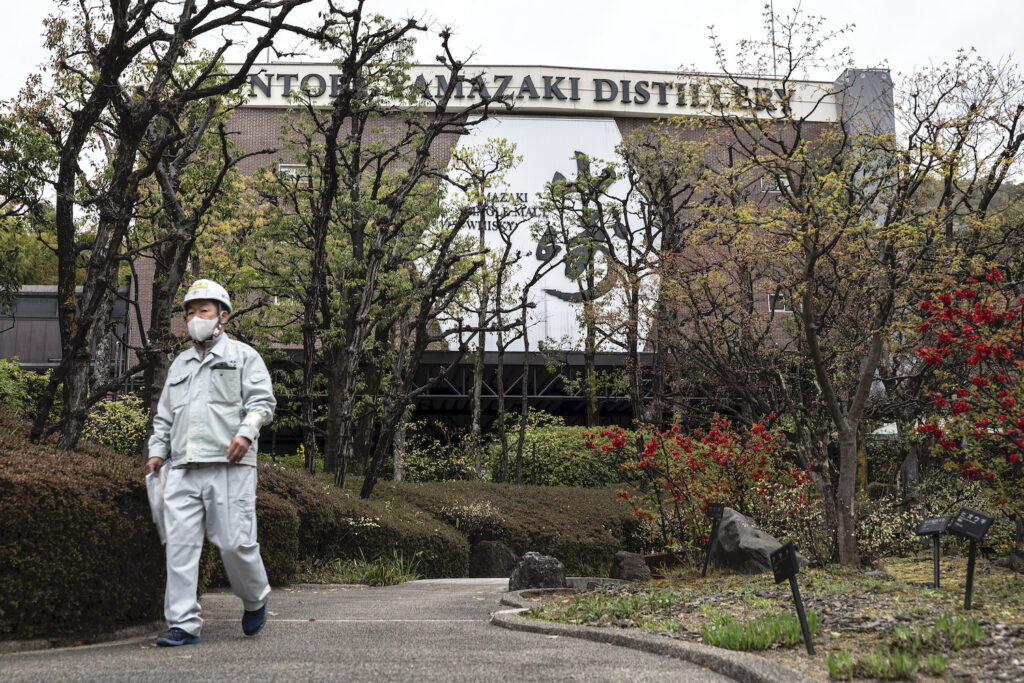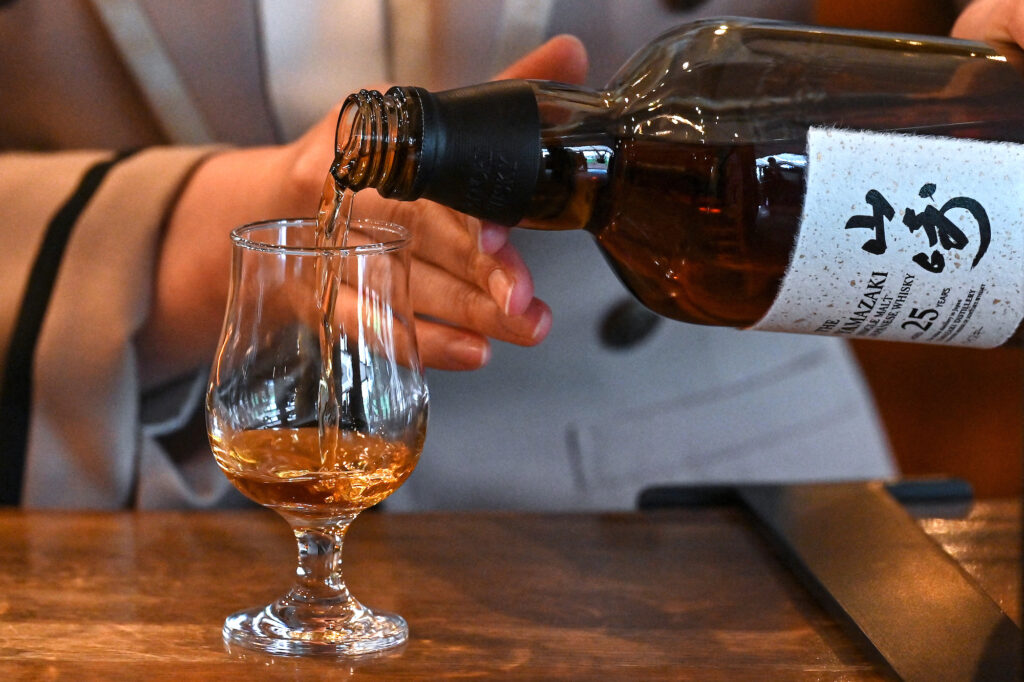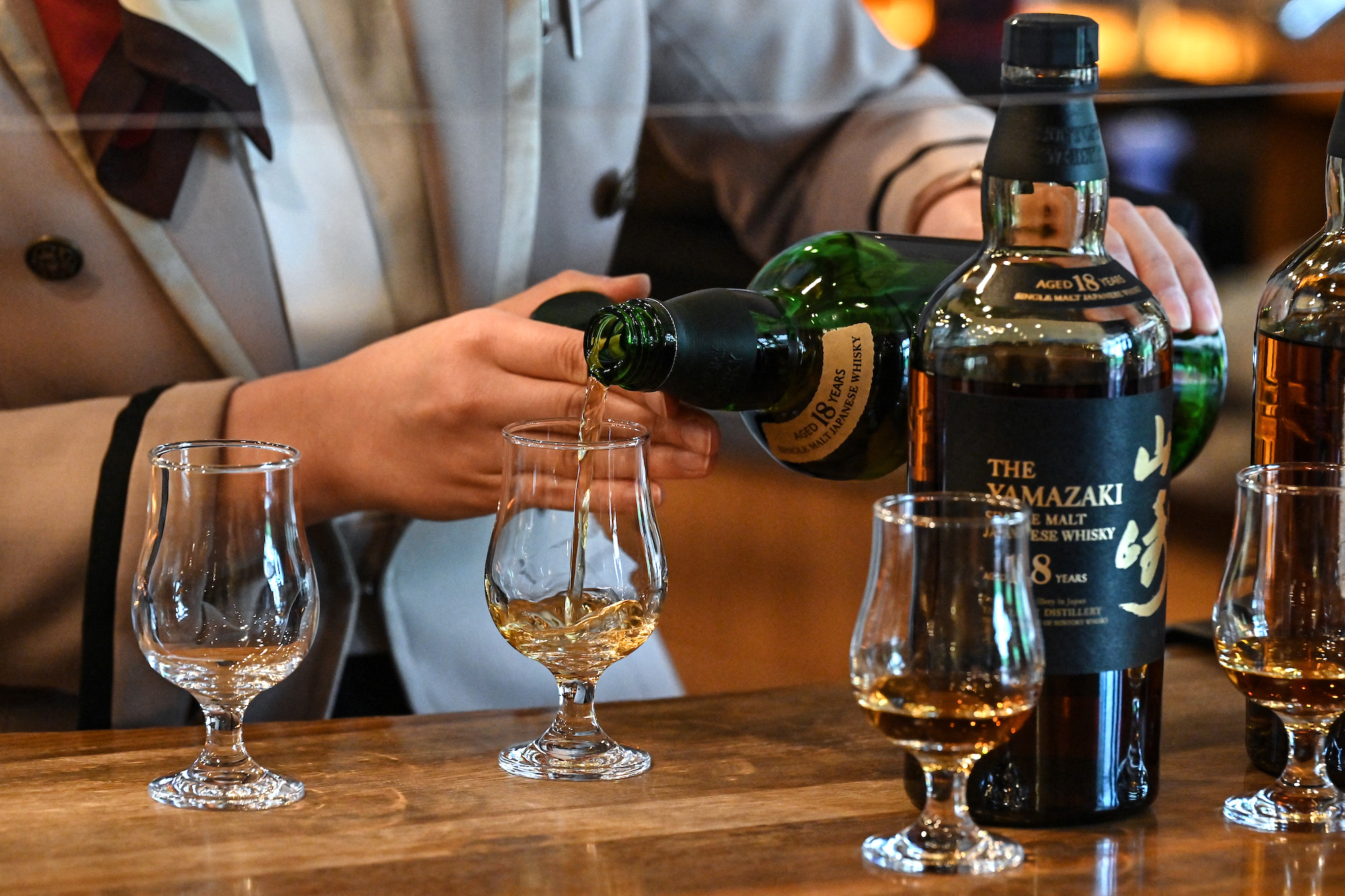By Natsuko Fukue | Photos by Richard A. Brooks/AFP
The famed Yamazaki distillery marks its 100th anniversary this year with plenty to celebrate, as Japan’s acclaimed aged whiskies command increasingly eye-watering prices, thanks to growing demand and longstanding shortages.
Japan’s oldest distillery has sat at the foot of a mountain outside Kyoto since it was built by Shinjiro Torii, the founder of Yamazaki maker Suntory, who wanted to make whisky suited to a Japanese palate.
It is largely foreign demand, along with the relative scarcity of the most desirable decades-old bottles, that has pushed prices sky-high.
A bottle of Yamazaki 55, with an official retail price of three million yen ($20,700), sold for a whopping $600,000 at a Sotheby’s auction in New York last year. That was still well below the record $795,000 set at a Hong Kong auction in 2020.
And in Japan’s upscale Ginza district, a more modest Yamazaki 18 with a manufacturer’s price of 32,000 yen ($220) is on sale for 120,000 yen.
A bottle of Yamazaki 55, with an official retail price of three million yen ($20,700), sold for a whopping $600,000 at a Sotheby’s auction in New York last year. That was still well below the record $795,000 set at a Hong Kong auction in 2020.
Suntory does not disclose production volume but the distillery’s senior general manager Takahisa Fujii said it has risen dramatically over the past 20 years. The company announced plans this year to pump 10 billion yen into its Yamazaki and Hakushu distilleries, but demand still far outstrips capacity.
“We have received so many requests for our whisky from customers around the world, so we are trying to respond to them as best we can,” Fujii said.

The Yamazaki distillery welcomes dozens of visitors from Japan and abroad each day but those hoping to stock up on aged varieties come away disappointed.
Peter Kaleta, a 35-year-old visitor who runs a bar in Poland, was crestfallen he couldn’t buy one of his favorites. It’s a “must-have” for whisky bars, he added, calling the lack of aged varieties “kind of depressing.”
The boom is back
Junpei Kusunoki, manager of Tokyo Whisky Library, a bar in the chic Omotesando district, is no stranger to the struggle for supply. “The whisky boom is back,” he told AFP.
“There’s a quota in Omotesando area, so it’s a war against competitors. We’re trying everything to rake in bottles.”
The location of Yamazaki’s distillery is a world away from the Scottish terroir most associated with whisky but Fujii says the site was chosen for the region’s famed water.
“You can’t make good liquor without good water,” senior general manager Takahisa Fujii said, adding that the humid and misty environment helps age the whisky.
Its renown traces back to the 16th century, when Japanese tea master Sen no Rikyu labored nearby.
“You can’t make good liquor without good water,” Fujii said, adding that the humid and misty environment helps age the whisky. The distillery’s unique range of copper stills in different shapes and sizes also contribute to the brand’s particular profile, he said.
Yamazaki’s layered and well-balanced flavors are considered a good match for Japanese cuisine, Fujii said.
There are now around 100 distilleries across Japan, according to whisky critic Mamoru Tsuchiya, with a reputation for quality helping boost the profile of its tipples.

The exorbitant prices are the result of a “lack of whisky at a time when demand from abroad has increased exponentially”, he said. Today’s success belies a 20-year downturn after domestic consumption peaked in 1983. “Sales were declining every year,” said Nobuyuki Akiyama, head of Suntory’s whisky marketing division, “… so the impact was big”.
Make it Suntory time
Things only started to turn around in the early 2000s, when Nikka Whisky’s Yoichi 10 and Yamazaki 12 received prestigious international industry awards.
And 2003 saw Suntory’s Hibiki 17 play a starring role in the hit movie “Lost in Translation”, featuring Bill Murray promoting the drink with the line: “For relaxing times, make it Suntory time.”
“We have Hibiki 30, for example, where we need to think about how many bottles we should make 30 years into the future,” said Suntory’s head of marketing division Nobuyuki Akiyama, adding it was “impossible” to predict the market so far in advance.
Domestic sales also recovered just as international demand began to rise, thanks in part to the revival of highballs, a mix of whisky and soda. A 2015 television drama based on the life of Nikka Whisky’s founder also helped drive renewed domestic interest.

The sudden uptick came too quickly for companies that have to plan production decades in advance.
“We have Hibiki 30, for example, where we need to think about how many bottles we should make 30 years into the future,” said Akiyama, adding it was “impossible” to predict the market so far in advance.
For now, sales look likely to continue growing, with exports surging to 56 billion yen ($404.1 million) last year, 14 times more than a decade earlier.
Judith Ly, a German visitor to the Yamazaki distillery, said she makes an exception for Japanese whisky. “Normally I don’t drink whisky, but I like the taste,” she said. “It’s smooth. It’s easy to drink.”
© Agence France-Presse





